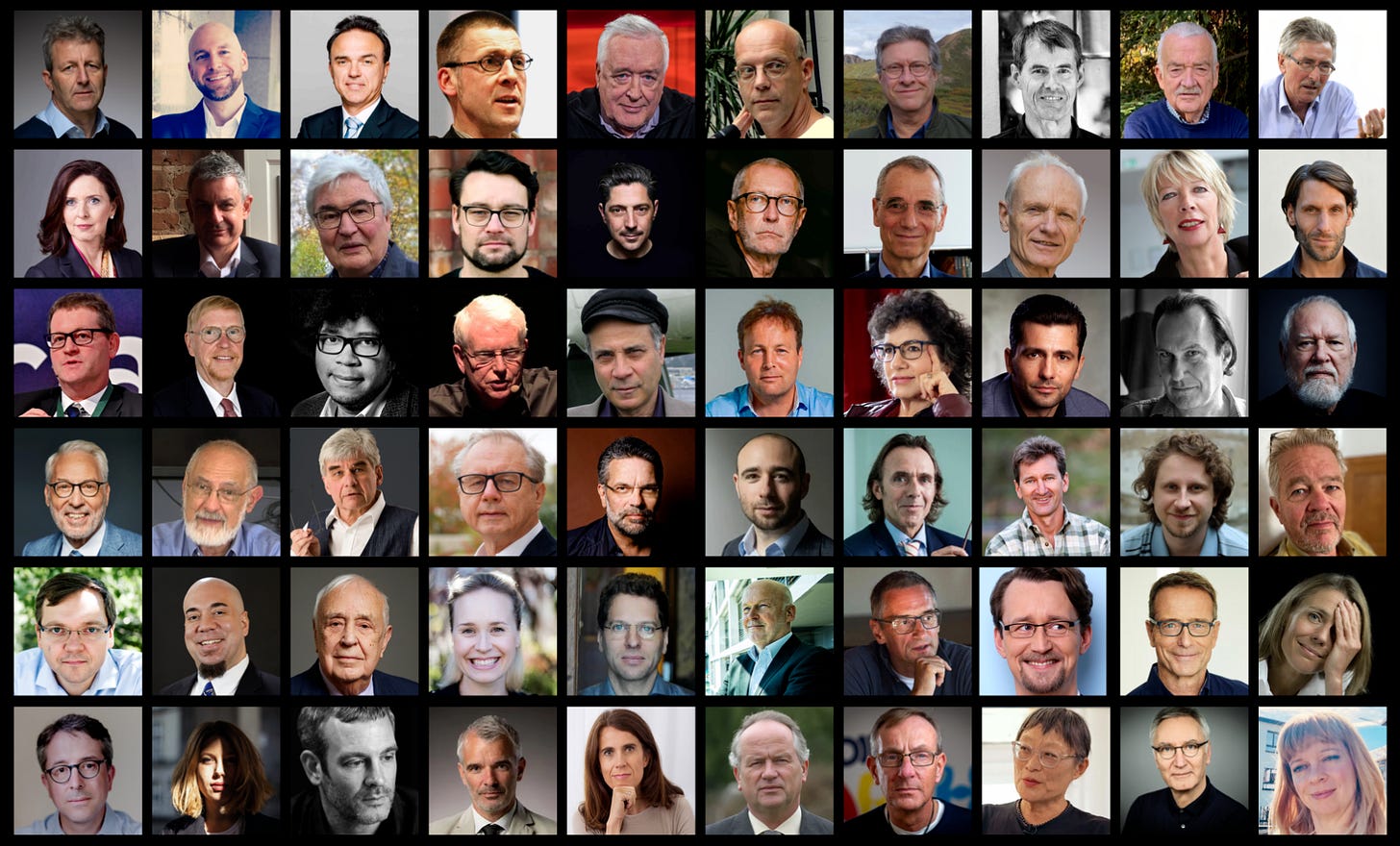Time flies – and suddenly, this blog is two years old. Despite my fascination with the dogma of the Immaculate Conception, it is not the case that it just happened like the Virgin comes to the child. Or is it? In any case, there’s a touch of ex nihilo to the creation of this blog, which may explain why I didn't have to think about the title for five minutes. That something has emerged here from nothing is a precise description in that a certain restraint has characterized my personal relationship with social media from its beginning. No Twitter, no Facebook, no Instagram – nothing. And not because I believed it was important to stand out through absence or that to remain authentic, one must undergo a digital detox. It’s quite the opposite, as I would count myself among the minority who wholeheartedly welcome digital transformation. However, it seems decivilizing to me when interacting through the arousal curves of the Click Economy, the Logic of Likes, re-tweets, and shares. Or, as Peter Thiel once aptly said:
We dreamt of flying cars, but got 140 characters.
The fact that the ex nihilo blog nevertheless saw the light of day has to do with a number of things. Indeed, one point was that, during Covid time, I went into an almost monastic retreat and turned to the question of the Psychology of the Machine, the project that will be published as a book series by Matthes & Seitz Verlag—of which the first volume, titled Über dem Luftmeer, is already available.
Above the Sea of Air
Hopkins Stanley and Martin Burckhardt discuss the inspiration behind Martin’s major book series titled The Psychology of the Machine - and how Nietzsche's criticism of Philosophy was the inspirational guide in his research and writing the series.
Monastic solitude has its merits, but it isn't a state that should last forever. So when I returned to the present, I felt the need to do something about my cultivated unworldliness. Why not prescribe a little resocialization? The fact that I came across Substack has to do with the fact that a literary ecosystem has emerged here that, unlike the sensationalist click machines of the attention economy, is an environment that matches the author's pace. Furthermore, you don't have to deal with advertising, clickbait, or pop-ups here. The second, much more decisive point was that with Hopkins Stanley, a person appeared in my life who, after listening to a single lecture, made it abundantly clear he wished to trace my enigmatic-seeming train of thought back to its origins – and even more: to translate all of this into English. And because he presented me with one question after another, I began searching my hard drives for those texts where specific figures of my thought had their beginnings. When thinking about the recent past, I'd always recalled the texts I had been working on at the time in question, but I’d been extremely reluctant to actually read them – making the physical files, lying dormant on hard disks, seem like sealed places. In any case, opening one of these files, which hadn't been opened in decades, felt like entering a tunnel that beamed you into another era. But once there, the space between the words fills up with memories, thoughts that later developed into larger excursions become visible in statu nascendi. This surprise—and the attempt to mark those turning points in my writing life that made me take a different turn so long ago—took the form of a small Éducation sentimentale.
While you may think that writing about yourself is succumbing to narcissistic temptation, this series' intention was just the opposite. We wanted to expose the cracks that allow a dialog to take place about all the things that extend far beyond our individual experiences. Because one thing leads to another, when editing a translation, you find yourself wanting to transform the text or the corresponding book chapter into a different form, like an audio piece or a film. Play it again!
And all of this together was the impulse that led to ex nihilo. And when I entered into a long dialogue with Hopkins Stanley, another question arose. Since Substack had integrated audio and video recordings at the time, we asked ourselves: Why not converse with other intellectuals? If the Corona lockdown has done one thing, it's introduced the world of Zoom conferences and telematic conversations to every modern individual – which, from a communications technology point of view, has made initiating such discussions a breeze. My resocialization program was perfect for starting a conversation series that’s since produced more than 60 of them.
There is something quite fascinating about exchanging views with a wide range of contemporaries (philosophers, theologians, nutritionists, foresters, social scientists, climatologists, economists, psychiatrists, politicians, etc.) on the pressing issues of the day, not least because each dialogue means engaging with someone else's world view – and allowing your authorship to fade into the background. Now, this restraint isn't just a form of politeness but unlocks that mental space that, in this age of shortened attention spans, has been thoroughly damaged. And with that, the expectation was that such a conversation could be followed in a year, two years, or three years—and that all these conversations represent a thesaurus with an effect far beyond the present.
Where will it all lead? Like a child, such a project develops particular idiosyncrasies and, with growing freedom of movement, begins to stand on its own two feet. Consequently, we don't have to do anything other than follow the project's paths. In doing so, a question that has always played a significant role in my life as an author is emerging more and more clearly. A blog like this, which combines texts, images, audio pieces, and videos, means that mediality must always be considered, especially since the revolution in artificial intelligence is bringing forth forms of expression that we would not even have dared to dream of before.
Because much of it leads into new conceptual and aesthetic territory, we started experimenting with a wide variety of forms early on – and these experiments, which are, above all, great fun, will continue. As far as content is concerned, the talks are a good guide in that they highlight the blind spots and unresolved issues of our time. One point we’ve touched on but haven't realized yet is a series of talks that Hopkins and I will devote to the question of the Attention Economy. What will that look like?
Let yourself be surprised.







